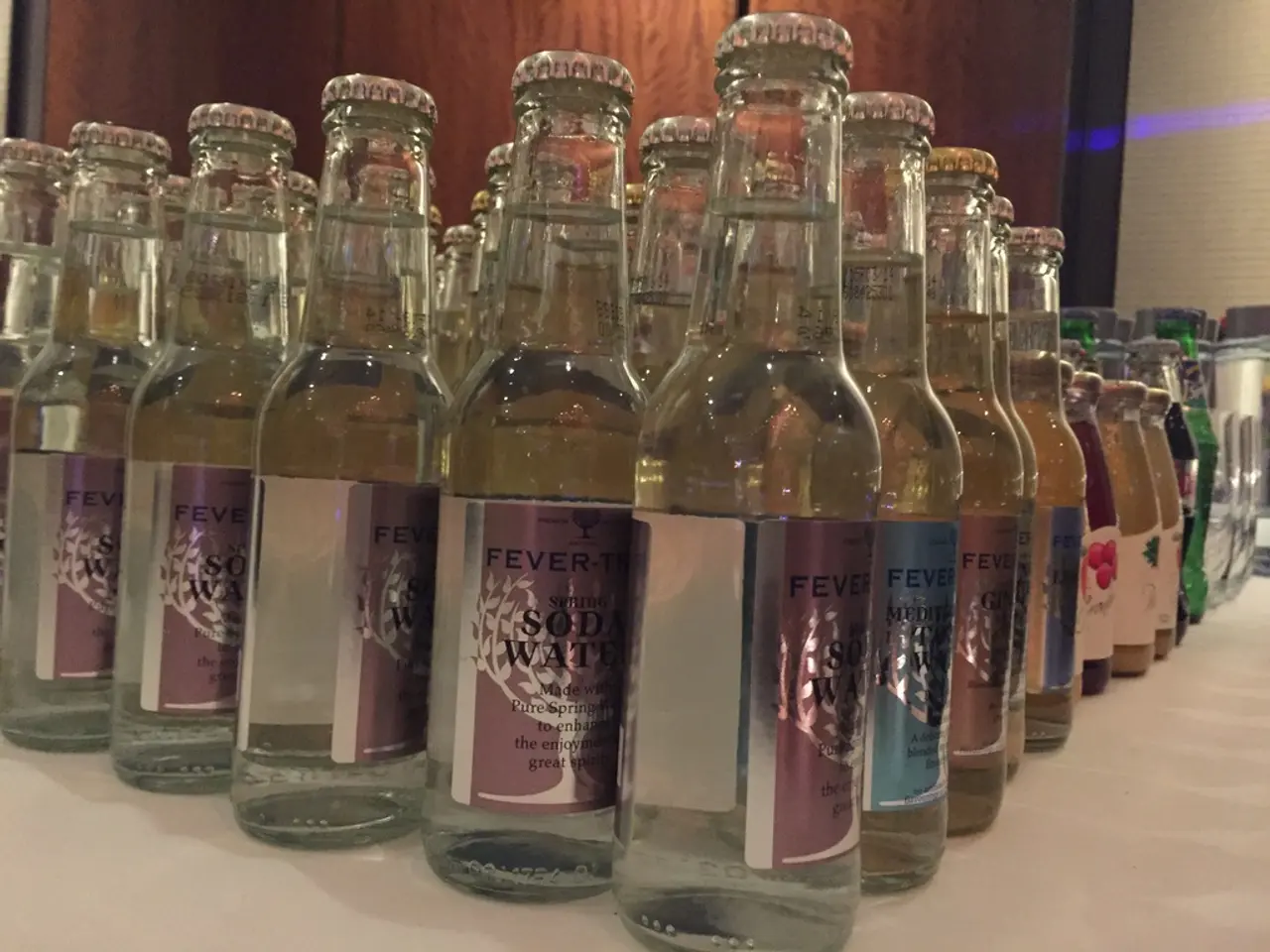Four do-it-yourself treatments for genital warts, as detailed by Medical News Today.
In the realm of sexual health, genital warts have been a topic of concern for many. This article aims to provide an overview of home remedies, lifestyle changes, and traditional medical treatments for genital warts, as well as their effectiveness.
### Home Remedies and Lifestyle Changes
When it comes to home treatments, several options exist, such as local creams applied at home. Common self-applied options include Aldara (Imiquimod 5%), Podophyllotoxin (Warticon or Condyline), and Catephen (green tea extract ointment). These creams work by causing local inflammation to kill wart cells and stimulate a local immune response against HPV, the virus causing genital warts. Their reported effectiveness is about 60-70%, with treatment often lasting 4 to 16 weeks[1][4].
Avoiding irritation in the genital area and maintaining good hygiene can help, though this alone does not remove warts. Other home topical approaches like warm compresses or gentle cleansing are more relevant for genital pimples rather than warts and do not treat the viral infection itself[2].
Some alternative therapies such as homeopathy report high effectiveness rates (75-90%) for warts in some studies, but these are less supported by mainstream medical research and are not specific to genital warts[3].
### Traditional Medical Treatments
Prescription topical creams, such as Aldara, Podophyllotoxin, and Catephen, are well-studied and can reduce wart size and recurrence, especially Aldara, which has evidence of lowering recurrence rates[1].
Surgical options include laser therapy, cryotherapy (freezing), or excision, which physically remove the warts but do not eliminate the underlying virus[4]. There is no cure for the HPV virus itself; treatments focus on wart removal and symptom management.
### Effectiveness Comparison
| Treatment Type | Effectiveness | Notes | |--------------------------|----------------------------------|-------------------------------------------| | Prescription topical creams | ~60-70% clearance rate | Also reduce recurrence (especially Aldara)| | Surgical removal | Immediate wart removal | Does not affect underlying virus | | Home remedies/lifestyle | Limited evidence and lower efficacy | May help symptom relief, not virus clearance | | Homeopathy | Reported 75-90% in some studies | Not widely accepted in conventional medicine|
### Summary
Topical prescription creams are the most effective and practical home-based treatment for genital warts, balancing efficacy and ease of use. Surgical methods provide quick wart removal but are not home remedies. Other home remedies and lifestyle measures may help with symptom management or minor cases but are not a substitute for medical treatment.
Since genital warts are caused by HPV, no treatment fully eradicates the virus; recurrence is possible even after successful wart removal[1][4]. If you suspect you have genital warts, it is advisable to consult a healthcare professional for diagnosis and appropriate treatment, especially because genital warts can be confused with other conditions requiring different treatment.
Interestingly, cruciferous vegetables, such as broccoli and cabbage, may halt the development of genital warts due to molecules that the body metabolizes into chemicals that attack HPV. However, further research is needed to confirm this potential benefit.
It's also important to note that the Food and Drug Administration (FDA) does not regulate alternative medicines, so it's crucial to discuss these remedies with a doctor and buy them from a reliable source. Garlic, for instance, has shown some promise in a 2018 study, with 10% garlic extract having a similar effect to cryotherapy on genital warts in male participants[5]. However, witch hazel and tea tree oil, while showing potential against certain strains of HPV, require further study before they can be recommended as effective treatments for genital warts.
Experimental treatments, including treatment with the drug interferon, may help people for whom other treatments do not work. As research continues, new treatments and insights into genital warts and their management are emerging, offering hope for those affected by this condition.
[1] Centers for Disease Control and Prevention. (2021). Genital Warts. Retrieved from https://www.cdc.gov/std/hpv/stdfact-hpv.htm [2] Mayo Clinic. (2021). Genital warts: Diagnosis and treatment. Retrieved from https://www.mayoclinic.org/diseases-conditions/genital-warts/diagnosis-treatment/drc-20370614 [3] National Center for Complementary and Integrative Health. (2021). Genital warts: In Depth. Retrieved from https://www.nccih.nih.gov/health/genital-warts-in-depth [4] American Academy of Dermatology. (2021). Genital warts. Retrieved from https://www.aad.org/public/diseases/sexually-transmitted-diseases/genital-warts [5] PubMed. (2018). A randomized, placebo-controlled trial of garlic extract in the treatment of genital warts. Retrieved from https://pubmed.ncbi.nlm.nih.gov/29917745/
- In the domain of mental health, predictive models could aid in recognizing early signs of depression, thereby enabling prompt intervention and treatment.
- The relationship between diabetes and certain mental-health conditions like anxiety and depression has been a focus of ongoing scientific research.
- As home remedies for warts, various skin-care products, including Aldara and Podophyllotoxin, have been traditionally used, with reported effectiveness rates of around 60-70%.
- Sexual health encompasses not only physical health conditions, such as COPD, but also various medical-conditions pertaining to sexual wellness and mental-health conditions like sexual dysfunction.
- AQ, short for Alpha-Quadrivalent Human Papillomavirus, is a growing subject of interest in the field of health-and-wellness, due to its significant role in causing genital warts and other sexual-health concerns.
- In the realm of cancer research, experts anticipate a shift towards more predictive, personalized approaches in the coming years, offering tailored treatments based on individual genetic profiles.
- Mainstream medical science regards some alternative therapies, such as homeopathy and certain herbal remedies, with caution when addressing type-specific health concerns like genital warts.
- Preventive measures like good hygiene, regular medical check-ups, and maintaining a healthy lifestyle are crucial components of a comprehensive approach to managing and preventing various medical-conditions, including sexual health issues like genital warts.




